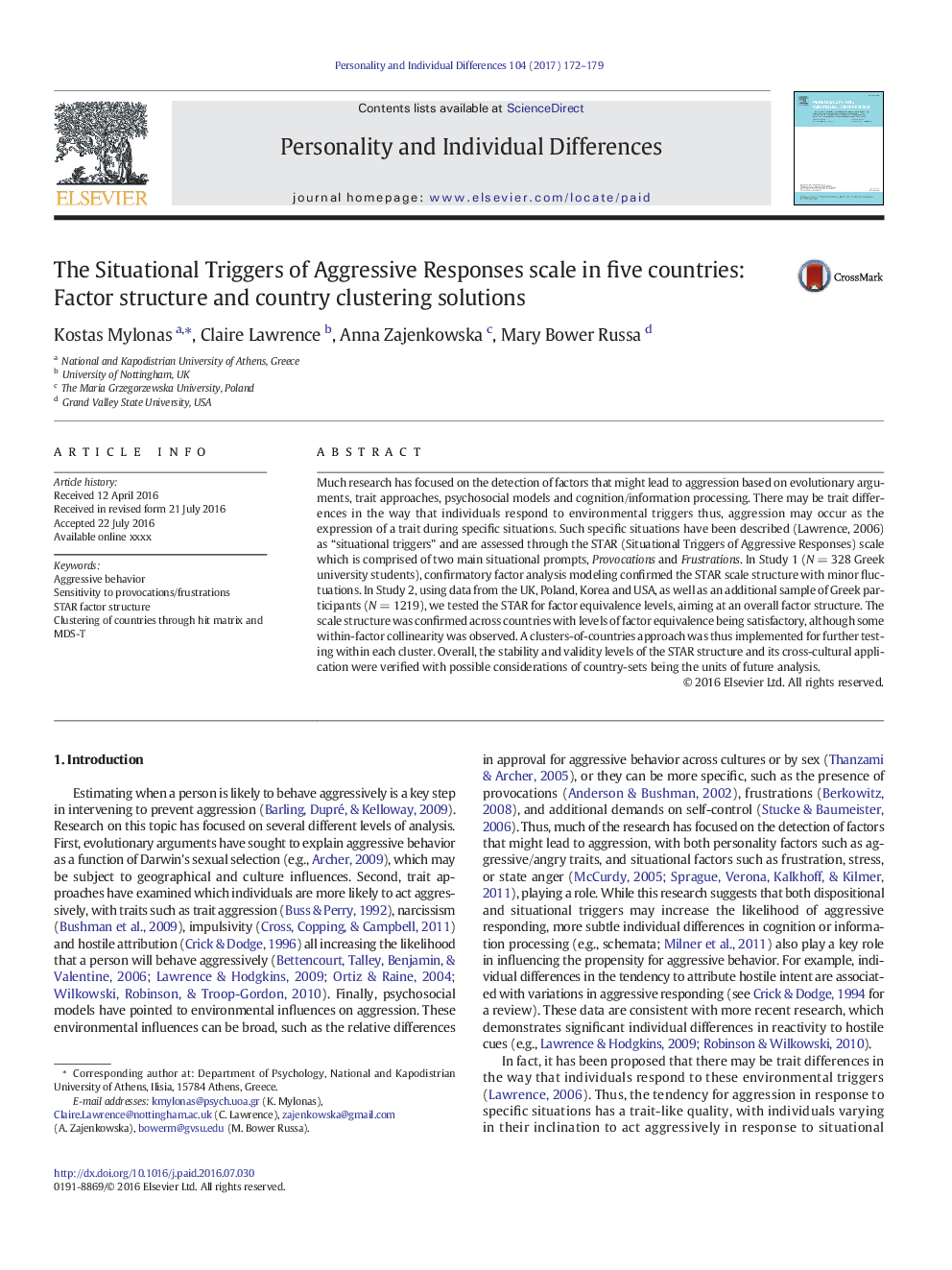ترجمه فارسی عنوان مقاله
عوامل مؤثر بر پاسخ های تهاجمی در پنج کشور مختلف: ساختار فاکتور و راه حل های خوشه بندی کشور
عنوان انگلیسی
The Situational Triggers of Aggressive Responses scale in five countries: Factor structure and country clustering solutions
| کد مقاله | سال انتشار | تعداد صفحات مقاله انگلیسی |
|---|---|---|
| 125695 | 2017 | 8 صفحه PDF |
منبع

Publisher : Elsevier - Science Direct (الزویر - ساینس دایرکت)
Journal : Personality and Individual Differences, Volume 104, January 2017, Pages 172-179

